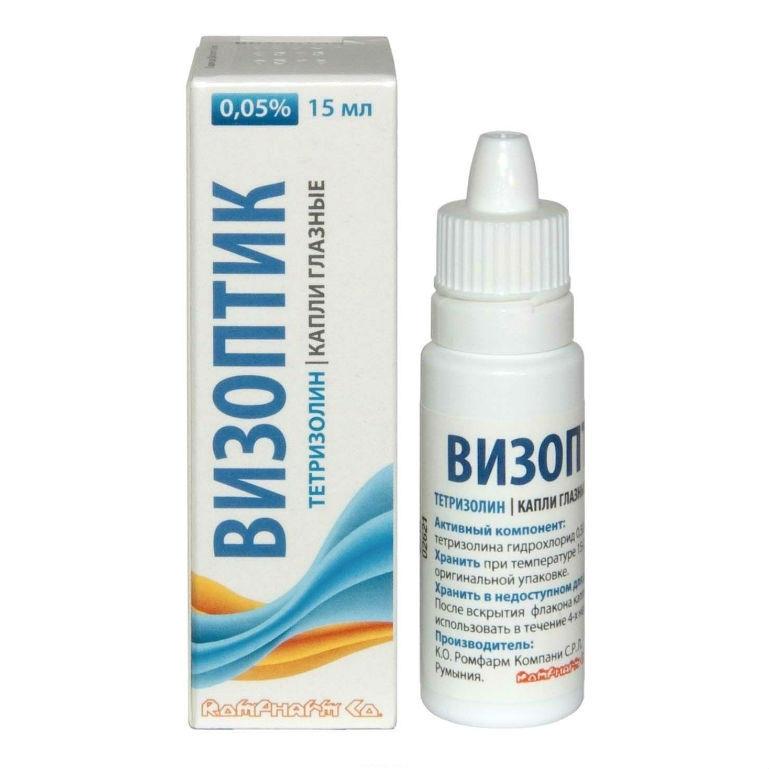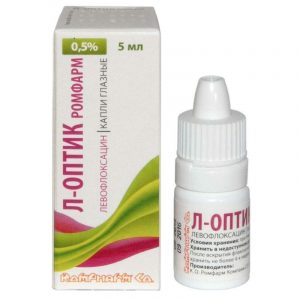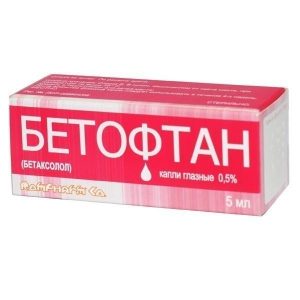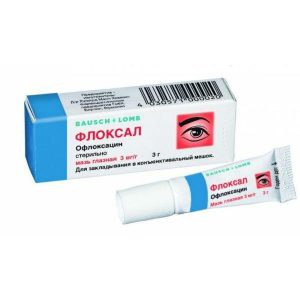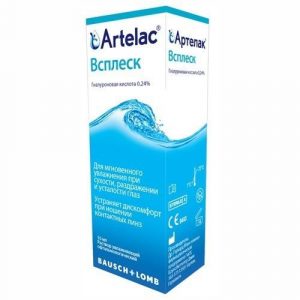Description
Latin name
VisOptic
Release form
eye drops.
Packing
15 ml – polymer dropper bottle (1) – packs of cardboard.
Pharmacological action
alpha-adrenergic agonist. It has a vasoconstrictor and decongestant effect.
When applied topically reduces conjunctival edema, burning sensations, soreness of the mucous membrane of the eyes, lacrimation.
The vasoconstrictor effect develops within a few minutes and lasts 4-8 hours.
Pharmacokinetics
When applied topically, systemic absorption is low.
Indications
moderate eye irritation: itching, swelling and hyperemia of the conjunctiva, burning, lacrimation, injection of sclera due to chemical and physical factors (dust, cosmetics, swimming in chlorinated water, exposure to bright light or radiation from a computer monitor)
aller
Contraindications
glaucoma
endothelial-epithelial corneal dystrophy
acute cardiovascular failure
bacterial eye infection
foreign body of the eye
children’s age up to 3 years
drug sensitivity.
Caution should be used in arterial hypertension, arrhythmias, aneurysms, hyperthyroidism, pheochromocytoma, diabetes mellitus, severe organic diseases of the heart and blood vessels (including coronary heart disease), as well as during treatment with MAO inhibitors and other drugs that increase blood pressure.
Use during pregnancy and lactation
Use of the drug during pregnancy and lactation (breastfeeding) is possible only if the intended benefit to the mother outweighs the risk to the fetus or baby.
Composition of
In 1 ml of eye drops contains:
Active ingredient
Tetrizoline hydrochloride 500 mcg.
Excipients
Boric acid, sodium tetraborate decahydrate, disodium edetate dihydrate, benzalkonium chloride, purified water.
Dosage and administration
Adults and children 3 years of age are instilled 1-2 drops 2-3 times / day in the lower conjunctival sac of the affected eye.
If there is no improvement within 48 hours, further use of the drug should be discontinued and a doctor should be consulted.
Side effects
Local reactions: increased intraocular pressure, burning sensation and reactive hyperemia of the eye rarely – dilated pupil.
Systemic reactions: increased blood pressure, hyperglycemia, impaired heart function, headache, nausea, drowsiness, weakness, tremor, dizziness, insomnia, tachycardia, allergic reactions.
Drug Interaction
Concurrent use with MAO inhibitors, tricyclic antidepressants, guanethidine can cause hypertension, tachycardia.
Co-administration with reserpine, insulin, propranolol, general anesthesia, atropine increases the risk of cardiovascular effects of tetrizolin.
Concomitant use with guanethidine may provoke mydriasis with temporary visual impairment.
overdose
The development of systemic symptoms of overdose is possible by accidental or deliberate ingestion or overdosage with topical administration.
Symptoms: pupil dilation, nausea, cyanosis, fever, convulsions, arrhythmias, hypertension, pulmonary edema, dyspnoea. Excessive systemic absorption of imidazole derivatives can lead to CNS depression, accompanied by drowsiness, hypothermia, bradycardia, collapse, apnea and coma.
The risk of overdose symptoms associated with the absorption of the drug is high in young children, especially when swallowed. Overdose in children can be manifested by CNS depression, accompanied by drowsiness, excessive sweating, expressed hypotension, up to shock.
Treatment: appoint activated charcoal, gastric lavage, oxygen inhalation, use of antipyretic and anticonvulsants. Phentolamine 5 mg per 0.9% sodium chloride solution is slowly administered intravenously or 100 mg orally to reduce blood pressure. The specific antidote is unknown.
Storage conditions
The drug should be stored out of the reach of children at a temperature of 15 ° to 25 ° C.
Expiration
5 years.
After opening the vial, the drops should be used for 4 weeks.
Active ingredient
tetrisolin
Dosage form
dosage form
eye drops
K.O.Romfarm Company S.RL., Romania
